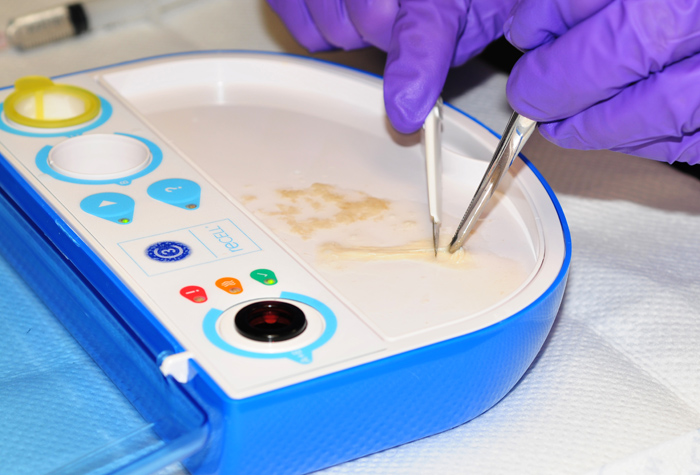Collaboration Key to Burn Care Innovation

"We're on the verge of having a new day-to-day world in burn surgery."
Those were the words used by expert Dr. James H. Holmes IV, Wake Forest University Baptist Medical Center's Burn Center's director, at the 2013 Military Health System Research Symposium Aug. 15 in Fort Lauderdale, Fla., as he discussed the state of health care for our country's burn patients.
Holmes was describing two emerging procedures -- both related to skin care -- which he believes will revolutionize burn care.
Holmes shared his thoughts during a roundtable discussion with medical experts from the U.S. Army Medical Research and Materiel Command, including U.S. Army Institute of Surgical Research Director of Research David G. Baer, Ph.D; Director of the Clinical and Rehabilitative Medicine Program Army Col. (Dr.) John Scherer; and Deputy Director of the Combat Casualty Care Research Program Air Force Col. (Dr.) Todd Rasmussen.
Traditional treatment for skin care on burn patients has been to use autographs, which mean taking healthy skin from another part of the body to use at the damaged location. Issues arise when a patient has a large burned area. Also, if more skin needs to be harvested, the donor site must completely heal before it can be re-harvested. This can leave a patient vulnerable to infection and other complications. Another option is to temporarily use grafts from cadavers or artificial skin, which could lead to other complications such as the body rejecting it.
"We've invested heavily in ways to engineer and grow skin that can be collected from a small patch between the size of a quarter and a silver dollar, processed and grown in a lab and then returned to the patient," explained Baer. "So a very small donor site can be used to treat a large area."
Baer said they are also exploring "spray on" skin.
Holmes credits the advancements in burn care and regenerative medicine to the direct support and collaboration of the military and funding by the Department of Defense.
"We've done a lot to improve burn surgical care," said Scherer. "We are in this business to change the practice of medicine and make the lives of not only those in the military, but those outside the military better."
"We could not have gotten this far without it," said Holmes.
Baer agreed, "Collaboration is the secret to innovating in this area."
 An official website of the United States government
An official website of the United States government
 ) or https:// means you've safely connected to the .mil website. Share sensitive information only on official, secure websites.
) or https:// means you've safely connected to the .mil website. Share sensitive information only on official, secure websites.


